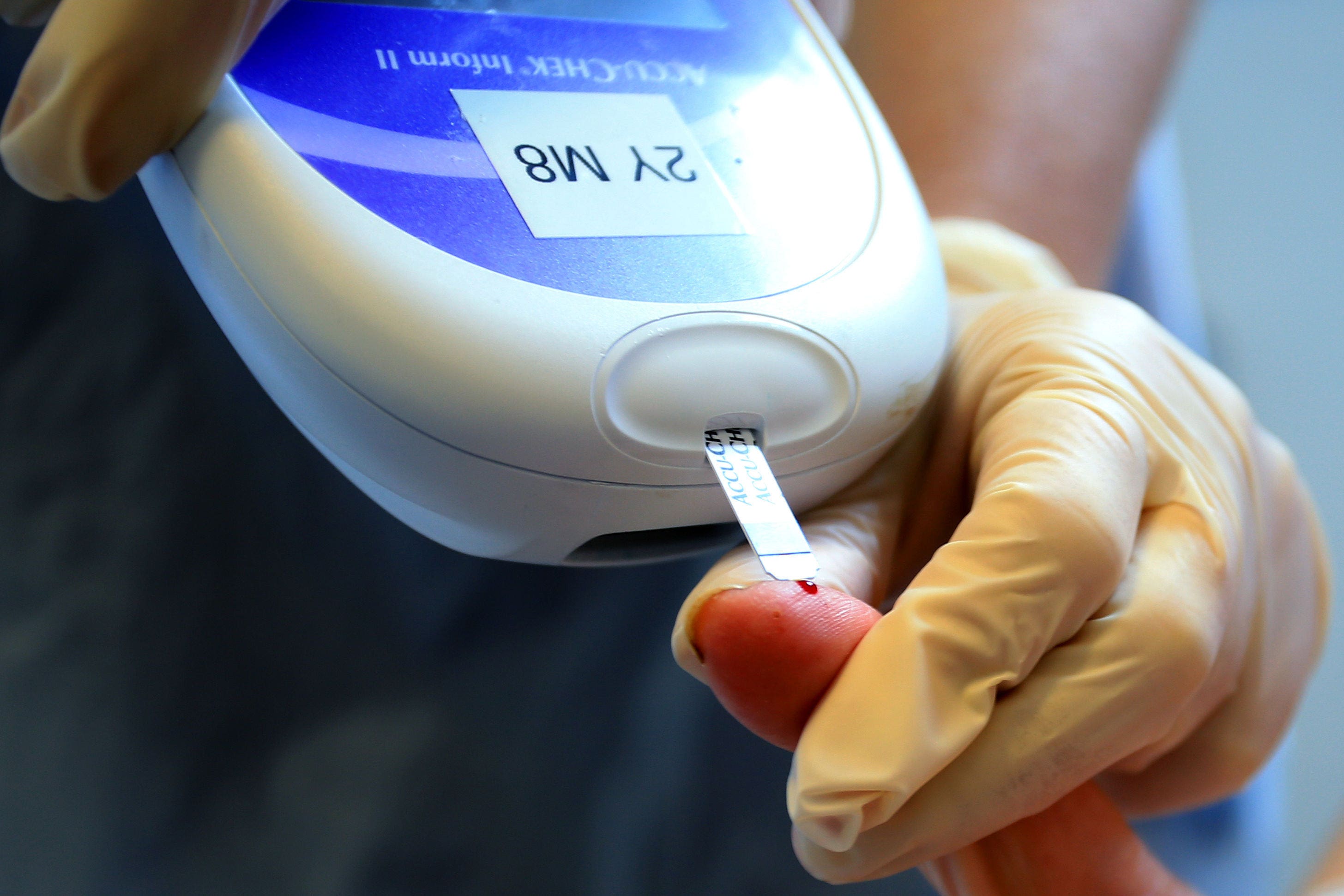100,000 diabetes patients could benefit from ‘artificial pancreas’ technology
Officials said they hope complications linked to hypoglycaemia caused by type 1 diabetes could become a ‘thing of the past’ thanks to the technology.

Some complications linked to type 1 diabetes could become a “thing of the past” thanks to a new technology which has been likened to an artificial pancreas.
More than 105,000 diabetes patients in England could be eligible for a “hybrid closed-loop system”, which helps patients manage blood sugar levels without the need to constantly monitor themselves.
It comes as the National Institute for Health and Care Excellence (Nice) recommended the use of the technology for people who struggle to control their condition.
This technology has been proven to give the best control for managing type 1 diabetes and should make things like amputations, blindness, and kidney problems possibly a thing of the past
At the moment the standard care for people with type 1 diabetes involves regularly measuring blood sugar levels either through a finger-prick blood test or by using a continuous glucose monitor.
Patients can keep their blood sugar levels in check with either multiple daily insulin injections or a pump to inject insulin under the skin.
The new loop system works by helping patients to manage their blood sugar levels without having to monitor if these glucose levels are too high or too low.
It continually monitors blood sugar levels and transmits data to a “body-worn” insulin pump which delivers the right level of insulin to keep a patient’s blood sugar levels within a healthy range.
Nice’s new draft guidance states said that people who are unable to control their condition, despite using an insulin pump or real-time or intermittently scanned continuous glucose monitoring system, should be offered the technology depending on their average blood sugar levels.
Pregnant women are also eligible, it added.
Nice estimates that some 105,000 people in England are set to be offered the technology – which costs around £5,700 per year.
Officials said they hope complications linked to hypoglycaemia caused by type 1 diabetes – such as amputations, blindness and kidney problems – could become a “thing of the past” thanks to the technology.
This technology is the best intervention to help them control their diabetes, barring a cure
Mark Chapman, interim director of medical technology at Nice, said: “Some people living with type 1 diabetes struggle to manage their condition, even though they are doing everything asked of them by their diabetes team.
“This technology is the best intervention to help them control their diabetes, barring a cure.
“Our committee has reviewed the real-world data generated by the NHS and evidence generated by randomised controlled trials which show there are clear benefits of recommending the technology’s use.
“We look forward to working with NHS England and industry to ensure a cost-effective price can be reached which is fair to taxpayers.”
Professor Partha Kar, national specialty adviser for diabetes at NHS England, said: “This technology has been proven to give the best control for managing type 1 diabetes and should make things like amputations, blindness, and kidney problems possibly a thing of the past.
“We have seen fantastic results from the real-world trials which have taken place and thank you to Nice for their review of the evidence and subsequent conclusions. The quality of life this technology gives to those using it is huge.”
The consultation on the new draft guidance will run until the end of January.
Nikki Joule, policy manager at Diabetes UK, said: “Hybrid closed-loop technology has the potential to transform the lives of people with type 1 diabetes, improving both clinical outcomes and their quality of life.
“Nice’s draft guidance is a promising step towards ensuring people living with type 1 diabetes in England and Wales have access to the technologies they can benefit from most, helping them to manage their diabetes, avoid complications and live well with the condition.
“Type 1 diabetes can take a huge mental toll, with people manually calculating how much insulin they need regularly throughout the day.
“By automating these calculations, hybrid closed-loop technology can greatly alleviate the emotional burden of diabetes.
“We look forward to it being rolled out on the NHS and will work towards ensuring that everyone who could benefit from this life-changing technology has access to it.”